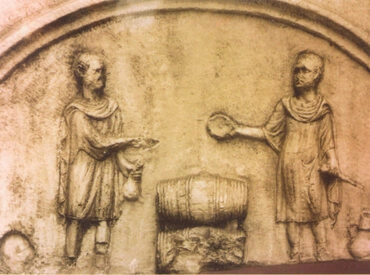In general, measurements of dry food – omers, ephahs, etc. – relate to good, and measurements of liquids relate to truth. A “bath” in Biblical times was a measurement of liquid – most authorities put it between six and eight gallons. We would expect it to relate to truth, then. The bath, however, was also used to measure oil, a liquid which was not a drink, and which represents the very highest and most holy states of love and caring. So the “bath” generally represents “truth from good,” worthy ideas inspired by a genuine desire to be good and loving. Varieties of food in the Bible represent the many ways we experience a desire for good; varieties of drink represent the many ways we can gain knowledge and understanding. Measurements in the Bible are a way of showing the quality of a spiritual state – six omers of barley, for instance, would apply the meaning of “six” to the spiritual value represented by “barley.” In Isaiah 5:10, bath specifically represents truth from good. (Apocalypse Explained 675[11])







